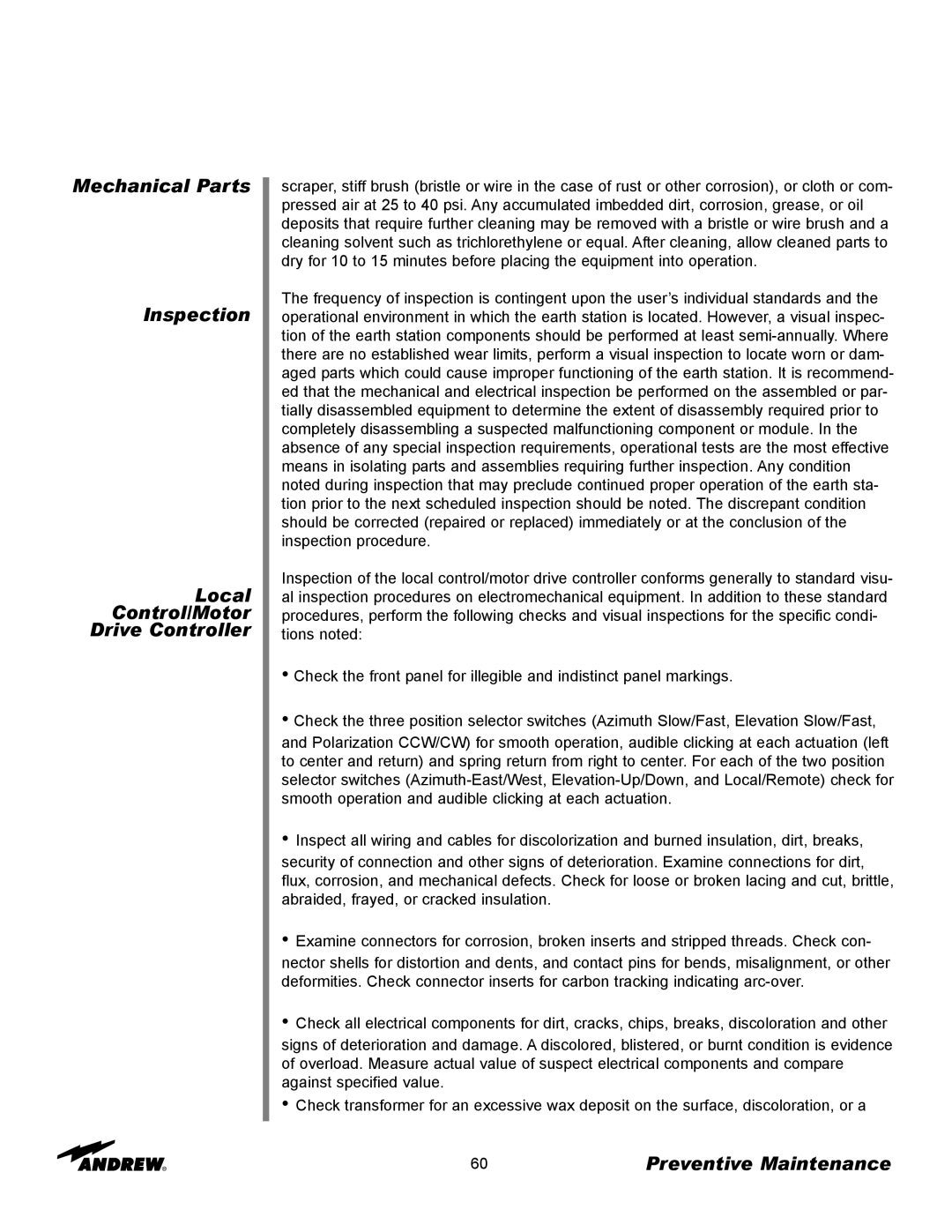
Mechanical Parts
Inspection
Local
Control/Motor
Drive Controller
scraper, stiff brush (bristle or wire in the case of rust or other corrosion), or cloth or com- pressed air at 25 to 40 psi. Any accumulated imbedded dirt, corrosion, grease, or oil deposits that require further cleaning may be removed with a bristle or wire brush and a cleaning solvent such as trichlorethylene or equal. After cleaning, allow cleaned parts to dry for 10 to 15 minutes before placing the equipment into operation.
The frequency of inspection is contingent upon the user’s individual standards and the operational environment in which the earth station is located. However, a visual inspec- tion of the earth station components should be performed at least
Inspection of the local control/motor drive controller conforms generally to standard visu- al inspection procedures on electromechanical equipment. In addition to these standard procedures, perform the following checks and visual inspections for the specific condi- tions noted:
•Check the front panel for illegible and indistinct panel markings.
•Check the three position selector switches (Azimuth Slow/Fast, Elevation Slow/Fast,
and Polarization CCW/CW) for smooth operation, audible clicking at each actuation (left to center and return) and spring return from right to center. For each of the two position selector switches
•Inspect all wiring and cables for discolorization and burned insulation, dirt, breaks,
security of connection and other signs of deterioration. Examine connections for dirt, flux, corrosion, and mechanical defects. Check for loose or broken lacing and cut, brittle, abraided, frayed, or cracked insulation.
•Examine connectors for corrosion, broken inserts and stripped threads. Check con-
nector shells for distortion and dents, and contact pins for bends, misalignment, or other deformities. Check connector inserts for carbon tracking indicating
•Check all electrical components for dirt, cracks, chips, breaks, discoloration and other
signs of deterioration and damage. A discolored, blistered, or burnt condition is evidence of overload. Measure actual value of suspect electrical components and compare against specified value.
•Check transformer for an excessive wax deposit on the surface, discoloration, or a
60 | Preventive Maintenance |
